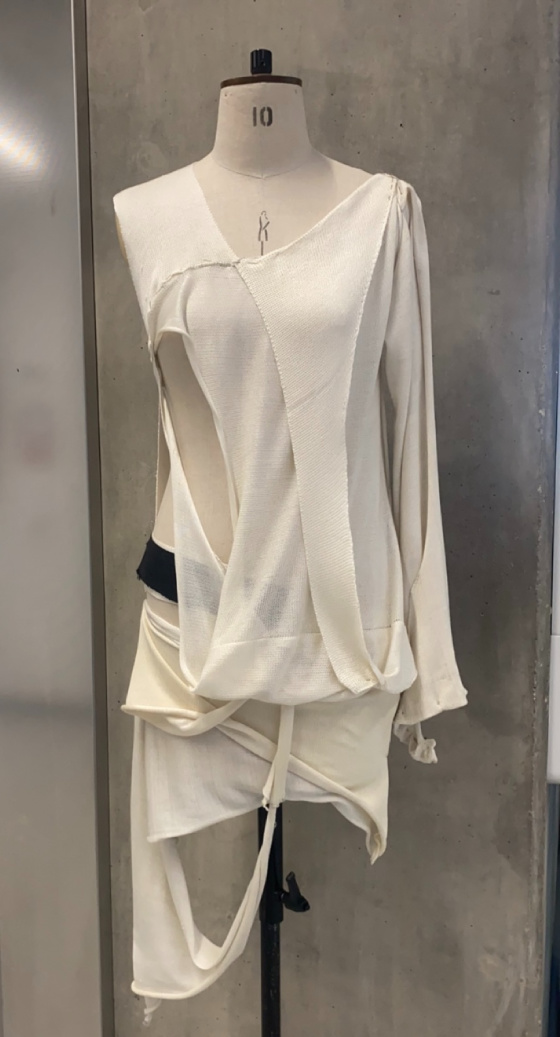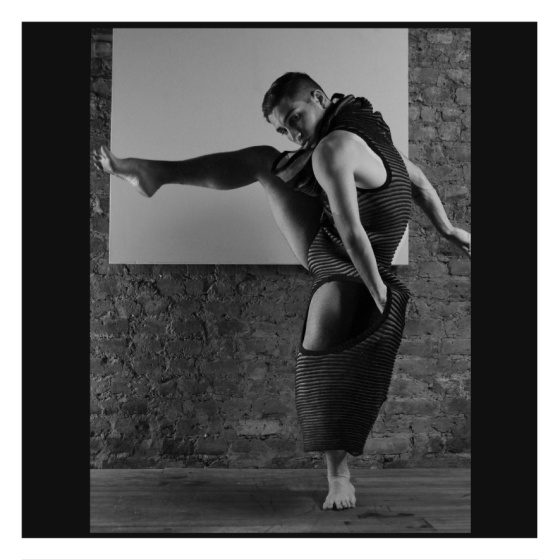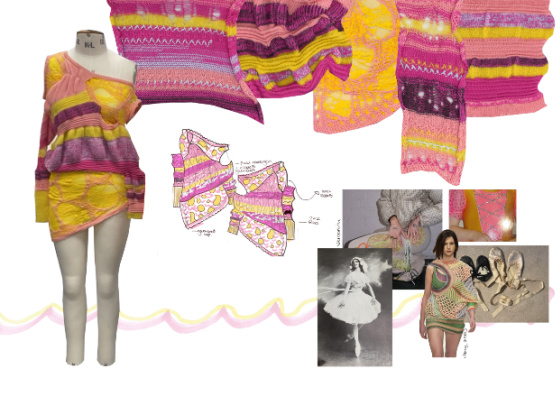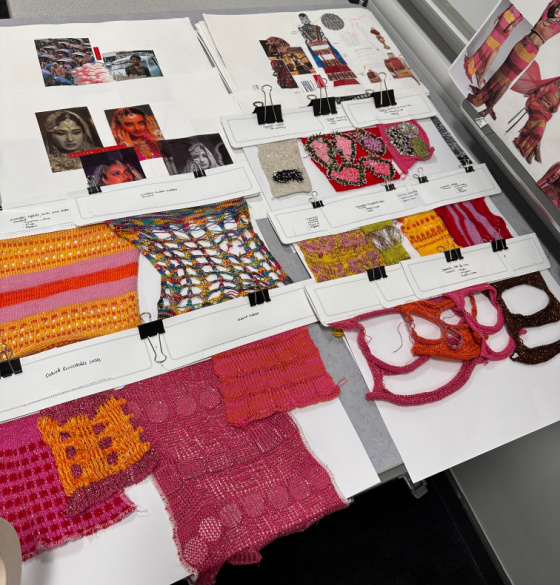Innovative knitwear designs have earned four fashion and textiles students at De Montfort University Leicester (DMU) recognition from The Worshipful Company of Framework Knitters.
The historic livery company, established in 1589, is committed to supporting students in further and higher education through a range of annual bursaries and awards.
Impressing the panel of judges this year has earned DMU’s Fashion and Textile Design students Olivia Squires and Lauren Green a £1,500 Company Award each, while Fashion Design students Estelle Brightmore and Amira Suleman have been highly commended.

The scale and quality of Olivia's sample pieces impressed the judges
A distinctive use of high quality and sustainably-sourced yarns to create large sample pieces ensured that Olivia’s work caught the eye of the panel. The 23-year-old from Nottingham, said: “Being selected for a bursary was unexpected but such a good feeling.”
Olivia creates her samples through effortless draping techniques and by shaping them with knots, envisioning them as full parts of a garment, such as a sleeve or bodice. To cut down on costs, she cleverly experiments with fabrics with similar properties to yarn, such as jerseys and ribbed knits.
She’s putting her prize money towards visiting the UK headquarters for Shima Seiki – a leading manufacturer of computerised knitting machines – where industry experts will help her to realise her designs. Olivia built this valuable connection during a two-week training course she attended with the brand last summer.
“I’m so happy I chose to study at DMU,” she said. “I’ve had lots of help with my dyslexia including study support sessions to help me structure my days. My tutors have been really supportive too, encouraging me to embrace my dyslexia as a positive thing which allows me to think and work differently to others.”

Lauren worked with a dancer to capture the versatility of her designs
Exploring the technicalities and pushing the boundaries of what can be done with yarn is what impressed the judges most about Lauren’s work, which makes clever use of colour and small areas of dense detail.
The 24-year-old from London, said: “It’s massively reassuring and a nice boost of confidence, just in time for our final major project. The prize money will make the biggest difference to our projects.”
Lauren, who plans on joining Olivia at Shima Seiki, already boasts valuable industry experience from a year-long placement working with a range of brands, including Victoria Beckham and bespoke bridalwear Alonuko, championed for its perfectly matching illusion tulles for women of colour.
“The facilities at DMU are amazing and our access to them is incredible,” she said. “Our course leader encourages us to experiment and our technicians are always willing to support my ideas.”

The use of bright, clashing colours set Estelle's work apart
Exploring knitwear helped Estelle to discover who she was as a designer, and now her use of bright, clashing colours and intricate techniques serve to set her apart.
“With knitwear, there are no boundaries to what you can do. You can use metallic yarns, ones that change with heat, mix different textures together and create something unique,” said the 21-year-old from Sheffield.
“Getting feedback and recognition from The Framework Knitters judging panel has given me confidence in what I’m doing.”

Amira was praised for drawing inspiration from her vibrant heritage
Weaving her African and Indian cultures into her work, Amira’s designs incorporate stunning hand embroidery and embellishments, praised by the judging panel.
“Personally, I don’t think there’s enough diversity in the fashion industry, which is why I try to use my culture and background in all of my projects,” said the 22-year-old from Leicester. “Because my work is so personal to me, it feels amazing to have it recognised in this way.”
One particular cultural garment that threads through most of Amira’s designs is the Indian kombi – a sheer chiffon scarf hand embellished with sequins and embroidery. It’s often made by mothers for their daughters’ wedding day.
She said: “The workshops at DMU have played a big role in my designs. I’ve been using the woodwork workshops to incorporate wooden shoulder pads into my designs as a nod to my dad having owned a hardware shop in Africa, and African artwork itself, such as basket weaving.
“My tutor, Della Swain, has also played a vital part in all of this for me. She’s my role model.”
Posted on Wednesday 17 April 2024